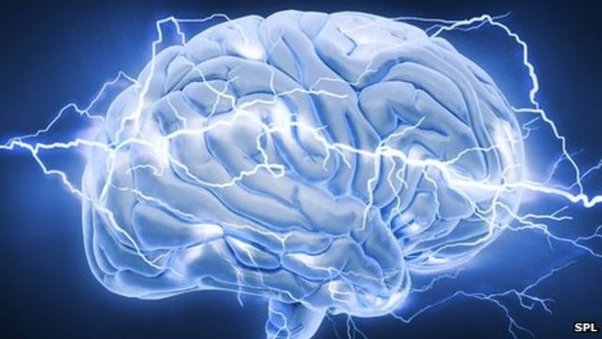The human brain is a marvel of evolution, capable of thinking and making decisions in ways no animal can. However, this complexity comes at a price – the brain is an energy-intensive organ, using around 20 percent of the body’s calories. For our brains to function correctly, we need to ensure they’re getting enough fuel throughout the day!
How Does the Brain Work?
According to the latest studies, the brain is one of the most energy-intensive organs in the human body. The brain accounts for about 20% of the body’s total energy usage and uses more energy than any other organ. To function, the brain needs about 300 calories per day.
How does the brain use energy?
The brain uses energy to create and process information, control movements, and produce emotions. Energy is used to make cells work and transport substances throughout the brain. The brain’s primary fuel source is glucose, which is converted into acetyl-CoA and energy.
How can you help your brain use less energy?
There are several things you can do to help your brain use less energy:
- Eat a balanced diet that includes plenty of fruits and vegetables.
- Exercise regularly.
- Get enough sleep.
- Avoid drinking too much alcohol.
- Avoid smoking cigarettes.
- Keep a healthy weight.
What Are the Brain’s Energy Needs?
The brain is one of the most energy-intensive organs in the body and requires a lot of energy to function correctly. The brain consumes about 20% of the body’s energy, and most of this energy goes to powering the brain’s functions.
The brain needs a lot of energy to process information, make decisions, and carry out other essential activities. It also needs a lot of energy to create new memories and strengthen existing ones.
The average human brain weighs about 3 pounds and uses about 20 watts of power. That’s equivalent to using a 100-watt light bulb for an entire day!
The brain makes some significant demands on the body’s resources, but it’s worth it because the brain is responsible for our behavior and well-being.
The Importance of Cognitive Acuity
The human brain is an energy-intensive organ. It consumes about 20% of the average person’s daily caloric intake and is one of the most active organs in the body. The brain is constantly working to track what is happening around it, process information, and make decisions. To do this, it relies on a constant supply of energy.
The brain also needs plenty of oxygen to function correctly. When the level of oxygen in the blood decreases, it can confuse, difficulty concentrating, and even seizures. Scientists believe some forms of dementia may be caused by decreased blood flow to the brain.
So how does the brain get its energy? The answer may surprise you: through glucose metabolism. Glucose is a type of sugar that the brain uses to produce energy. When ingested, glucose is broken down into smaller molecules called glucose 1-phosphates. These molecules are transported throughout the body by cells called cells transport proteins (CDPs). The CDPs bind with oxygen atoms from air to form O2-glucose complexes, which cells can use as energy sources.
The Negative Effects of Inadequate Fuel
The human brain is one of the most energy-intensive organs in the body. It uses up to 20% of the average person’s energy and even more during active tasks like learning or problem-solving. This high energy demand has severe consequences if you don’t have enough fuel to power your brain. Here are four ways insufficient fuel can harm your brain:
1. You’ll struggle to learn. When your brain doesn’t have enough energy, it can’t focus or remember information. This could lead to problems in school, work, or life in general.
2. You won’t be able to solve problems. If your brain doesn’t have enough energy, it won’t be able to devise creative solutions or solve problems effectively. This could lead to frustration and a lack of progress in your life.
3. You’ll experience memory loss and problems with concentration. If your brain doesn’t have enough energy, it will start to lose memories, and its ability to concentrate will deteriorate over time. This could lead to problems doing things you enjoy or holding a job for long periods.
4. You’ll suffer from mood swings and depression. If your brain isn’t getting the fuel it
Ways to Combat Low Energy Levels
Low energy levels can signify many different things, but often the root cause is an insufficient supply of energy. There are many ways to combat this issue and ensure you have enough energy to function at your best. Here are some tips:
1. Get enough sleep. A good night’s sleep is essential for maintaining energy levels, and getting less than six hours of sleep a night can lead to low energy levels. Make sure to go to bed and wake up at the same time each day to ensure you’re getting the most out of your sleep.
2. Eat healthy foods. Eating unhealthy foods can lead to low energy levels because they contain high amounts of sugar, carbohydrates, and processed foods. Try to eat mostly fruits, vegetables, and whole grains instead to get your recommended daily allowance of nutrients that help with energy production.
3. Exercise regularly. Exercise has been shown to increase energy levels and improve overall health. Even small amounts of exercise can significantly impact your overall well-being, so make sure to get active every day!
4. Take supplements if needed. If you find yourself struggling to maintain consistent energy levels, consider taking supplements such as Ashwagandha
Conclusion
The brain is an energy-intensive organ, requiring a lot of glucose to function optimally. When you don’t have enough glucose available, the brain struggles and can even start to lose cells. This isn’t just bad news for people who suffer from conditions like Alzheimer’s or Parkinson’s; it also has severe consequences for our overall cognitive health. To ensure that the brain can continue to perform at its best, we need to provide it with the fuel it needs. Fortunately, there are plenty of ways to do this, including eating a balanced diet and incorporating healthy habits such as exercise into your daily routine.




